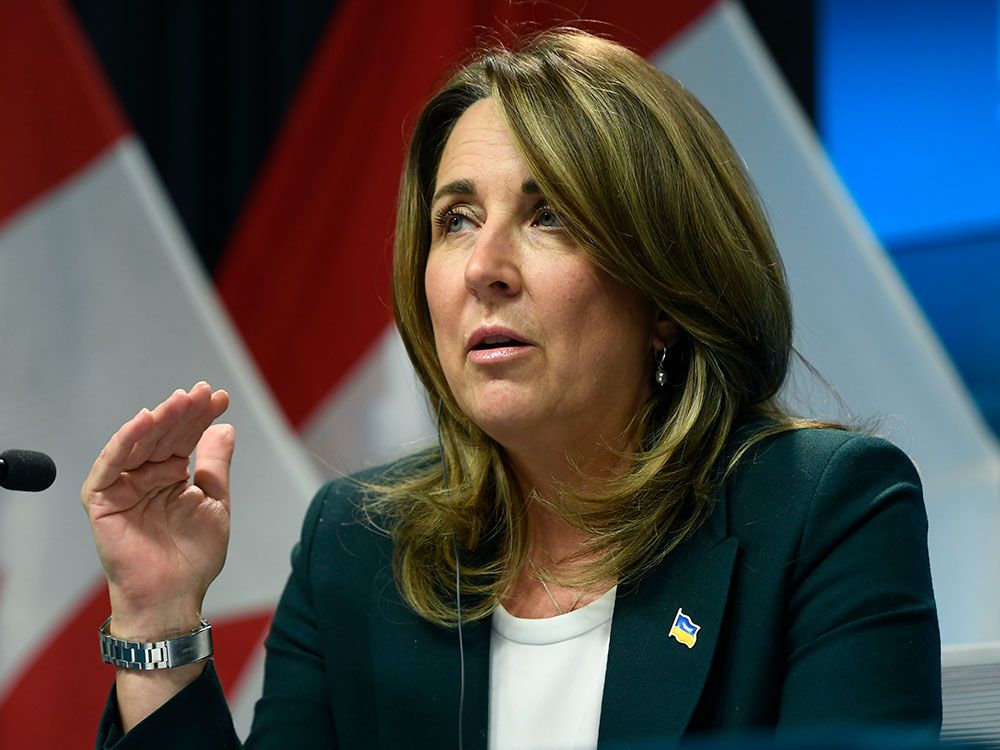More than 400 academics urge Canada to ditch carbon capture tax credit

Massive subsidy for fossil fuel industry would be better spent on renewable energy, electrification, energy efficiency, letter said

Article content
Canada’s plans to introduce a tax credit for carbon capture in the country’s oilpatch would amount to a fossil fuel subsidy for an ineffective technology, a group of academics said in a letter to the deputy prime minister.
Advertisement
Story continues below
This advertisement has not loaded yet, but your article continues below.
Article content
Carbon capture, where the carbon dioxide from oil and gas production facilities is sequestered and injected back into the ground, is economically unsound and has a “terrible track record” of delivering emissions reductions, more than 400 Canadian academics and climate scientists said in their letter to Chrystia Freeland. The money would amount to a subsidy for the fossil fuel industry that would be better spent on renewable energy, electrification and energy efficiency.
“The introduction of this tax credit would contradict the promise made by your government to Canadians during the election period to eliminate fossil fuel subsidies by 2023 as well as our international commitments under the Paris Agreement,” the group said in the letter.
Advertisement
Story continues below
This advertisement has not loaded yet, but your article continues below.
Article content
University of Victoria geography and civil engineering professor Christina Hoicka is the lead signatory on the letter and said carbon capture and storage is expensive, unproven and would prolong the use of fossil fuels rather than work toward replacing them with clean energy.
The federal government will probably include the tax credit in the next budget and detail the goal to cut emissions 40 per cent to 45 per cent below 2005 levels by March, Jonathan Wilkinson, Canada’s natural resource minister, said in an interview this month. Oilsands companies have announced a goal to zero out carbon emissions from their operations by 2050, mostly through carbon capture with government support, as their carbon intensive business faces increasing scrutiny from climate-conscious investors.
Advertisement
Story continues below
This advertisement has not loaded yet, but your article continues below.
Article content
-

We’re witnessing the birth of an industry amid race for Alberta carbon capture developments
-

Hydrogen power forecast to bring new dimension to energy geopolitics
-

Canada needs energy policy clarity around carbon capture to get projects off the ground
-

Why Canada may yet be an energy superpower
Such efforts would have little impact on the crude oil they produce and ship to refineries for making fuel. The combustion of fuel accounts for 80 per cent of emissions stemming from oil and gas, which the industry’s plan doesn’t address, Jason MacLean, a University of New Brunswick law professor who co-signed the letter, said by phone.
“The danger of using further public money to support oil and gas production is that it will prolong and expand oil and gas production,” he said. What’s more, if oil consumption plummets as the world moves aggressively to decarbonize, the investment in carbon capture infrastructure could create “stranded assets” as oil production in Canada declines.
Bloomberg.com, with additional reporting from the Canadian Press
Advertisement
Story continues below
This advertisement has not loaded yet, but your article continues below.









